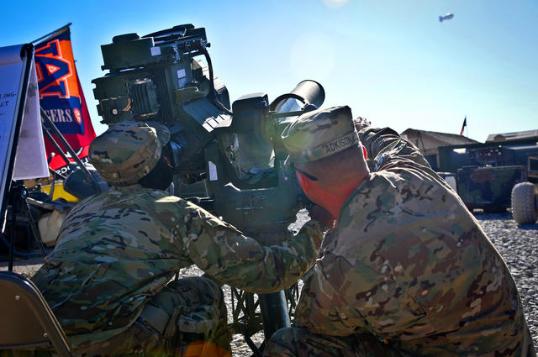
Raytheon has successfully conducted a series of laboratory and field trials of its third-generation forward looking infrared (3rd Gen FLIR) improved target acquisition system (ITAS) and fire control system at an undisclosed location.
As well as achieving proof of concept, the system also demonstrated enhanced sensor performance and situational awareness during the testing, which was carried out in the presence of programme office personnel from the US Army’s Close Combat Weapons Systems, Army Aviation branch, and Missile Research and Development Engineering Center.
How well do you really know your competitors?
Access the most comprehensive Company Profiles on the market, powered by GlobalData. Save hours of research. Gain competitive edge.

Thank you!
Your download email will arrive shortly
Not ready to buy yet? Download a free sample
We are confident about the unique quality of our Company Profiles. However, we want you to make the most beneficial decision for your business, so we offer a free sample that you can download by submitting the below form
By GlobalDataThe trials also involved preliminary evaluation of the impact of firing all versions of the tube-launched optically-tracked, wire-guided (TOW) anti-tank missile.
Raytheon Missile Systems Combat and Sensing Systems vice-president Jeff Miller said the FLIR enhancement programme provides soldiers with better clarity at all ranges, enabling target identification and differentiation between combatants and non-combatants at greater stand-off ranges.
"Implementing 3rd Gen ITAS FLIR improvements will continue to give our warfighters in the field an unfair advantage in the fight," Miller said.
An upgraded variant of the M220 TOW missile, ITAS is designed to provide army infantry, stryker brigade combat teams and marine corps with highly mobile, adverse-weather, day/night capability required for detection and engagement of long range threats in the battlefield.
Fitted with an eye-safe laser range finder, automatic boresighting, aided target tracker and built-in-test/built-in-test equipment (BIT/BITE), the system can be operated both in a man-portable configuration using a ground-mounted tripod or from a high-mobility multi-purpose wheeled vehicle.
While retaining its predecessor’s near-and-wide fields of view, the new 3rd Gen ITAS also features ultra-narrow and ultra-wide fields of view, apart from combining long-wave and mid-wave infrared and high-definition resolution.
Image: A US soldier looks through the scope of an improvised target acquisition system (ITAS) during training in Logar province, Afghanistan. Photo: courtesy of Zackary Root





